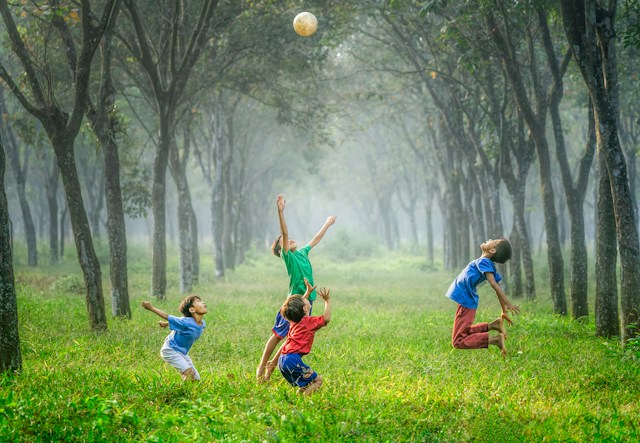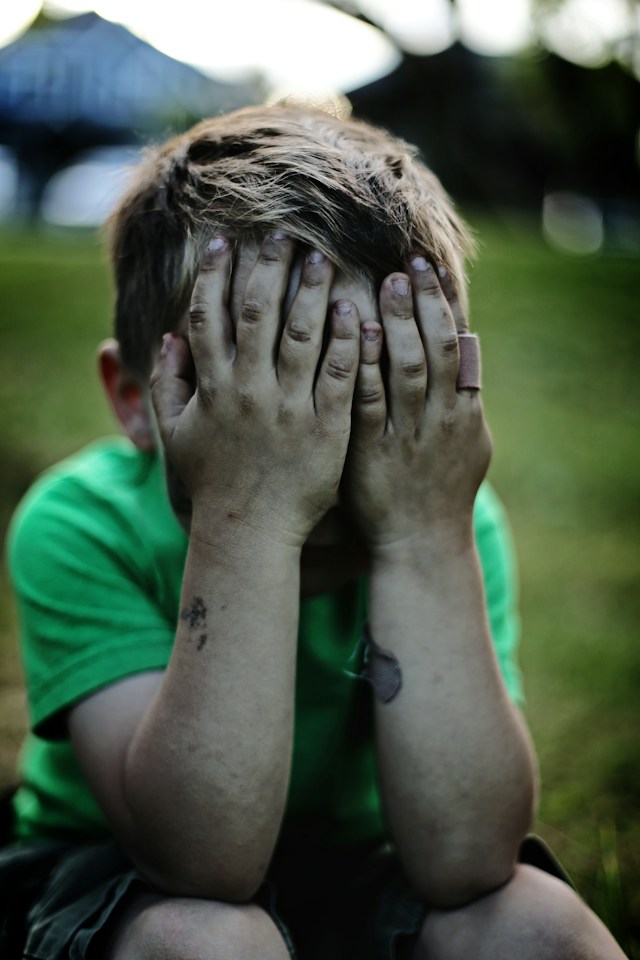what is an inner child? 👼

The inner child is a concept representing the childlike essence within each adult.
It embodies our innocent, curious, and emotional aspects developed during childhood. This inner self retains memories, beliefs, and emotions from our formative years.
Recognizing and nurturing the inner child involves acknowledging past experiences, healing wounds, and rediscovering joy, creativity, and spontaneity. It’s about embracing vulnerability, playfulness, and authenticity to foster personal growth and emotional well-being, allowing us to connect with our deepest selves and experience life with a sense of wonder and openness.
Each one of us has an “inner child” living inside!
Inner child allowing us to reconnect with forgotten joys and unlock deeper layers of authenticity and fulfillment.💜
every person carries an “inner child” within them. This inner child is a psychological concept representing the youthful aspects of our personality, emotions, and memories from childhood. It embodies innocence, curiosity, creativity, and vulnerability. Just as physical growth progresses, so does emotional and psychological development.
The inner child often influences our behavior, attitudes, and relationships, even in adulthood. Acknowledging and nurturing this inner child can promote healing, self-discovery, and emotional well-being, allowing us to reconnect with forgotten joys and unlock deeper layers of authenticity and fulfillment.

Navigating the Depths: Understanding the Wounded Inner Child! ✍️
Recognizing a wounded inner child involves paying attention to certain emotional and behavioral patterns:
Early Trauma or Neglect:
Childhood experiences such as abuse, neglect, or abandonment can deeply wound the inner child, leading to feelings of insecurity, low self-worth, and mistrust.
Cultural or Societal Influence:
Societal expectations, cultural norms, or societal pressure to conform can contribute to feelings of shame, guilt, or inadequacy, impacting the development of the inner child.
Unmet Emotional Needs:
When essential emotional needs, such as love, validation, or acceptance, are not adequately fulfilled during childhood, it can result in a wounded inner child seeking validation or love externally in adulthood.
Limiting Beliefs:
Negative beliefs formed during childhood, such as "I'm not good enough" or "I'm unlovable," can become deeply ingrained in the psyche, influencing self-perception and behavior in adulthood.
Family Dynamics:
Dysfunctional family dynamics, including parental conflict, substance abuse, or mental illness, can create an environment where the inner child feels unsafe or invalidated, leading to emotional wounds.
Understanding these core reasons can provide insight into the origins of your inner child’s wounds and guide you in the process of healing and self-discovery. Therapy, self-reflection, and compassionate self-care are essential in addressing these underlying issues and nurturing your inner child towards healing and wholeness.
How can I practically heal my wounded inner child? 🧘
Practical steps to heal your wounded inner child involve tangible actions that you can incorporate into your daily life. Here are some practical strategies:
Self-Compassion Practice:
Treat yourself with kindness and understanding. Practice positive self-talk, affirmations, and self-validation regularly.
Journaling:
Write down your thoughts, feelings, and memories related to your childhood experiences. Reflect on how these experiences have shaped your beliefs and behaviors.
Creative Expression:
Engage in creative activities such as drawing, painting, music, or writing to express and process emotions related to your inner child.
Inner Child Visualization:
Visualize yourself as a child and imagine providing comfort, love, and protection to your younger self. Practice this visualization regularly to foster a sense of nurturing and healing.
Mindfulness and Meditation:
Practice mindfulness and meditation to cultivate awareness of your emotions and thoughts without judgment. Mindfulness can help you observe and accept your inner child's wounds with compassion.
Healthy Boundaries:
Establish and maintain healthy boundaries in your relationships and daily interactions. Learn to say no when necessary and prioritize your emotional well-being.
Seek Support:
Surround yourself with supportive friends, family members, or support groups who can offer empathy, validation, and encouragement on your healing journey.
Physical Self-Care:
Take care of your physical health through regular exercise, nutritious eating, adequate sleep, and relaxation techniques such as deep breathing or yoga.
“The repetition of sacred sounds in mantra practice can heal our inner child,” suggests a profound connection to deep inner healing.

Healing Across Lifetimes! 💭
Have you ever wondered if your childhood traumas can affect your adult self, then what about your next life incarnation? 🤔
The concept of past lives or reincarnation is deeply rooted in various spiritual and religious traditions. In these belief systems, it’s often suggested that unresolved issues or traumas from previous lives can indeed carry over into subsequent incarnations.
From this perspective, the idea is that the soul continues its journey through multiple lifetimes, accumulating experiences and lessons along the way. Just as experiences and traumas from childhood can influence one’s adult self in this lifetime, it’s believed that unresolved issues from past lives can affect one’s experiences and behaviors in future lives.
Navigating Loneliness and Self-Esteem Struggles: A Journey of Healing 🎨
As a child, my friends neglected me, and their mothers’ unwelcoming attitudes left me feeling fearful. Since kindergarten, I always sought out friendships eagerly, preferring to have just one close friend rather than being in a group. Unfortunately, I often lost that one friend, a pattern that continued till college. This experience taught me the importance of relying on myself and finding freedom in independence. However, I still struggled to make lasting friendships, leading me to feel dependent on others. Simple tasks like going to the store or participating in school events felt intimidating. While I’m working on resolving these wounds, I’ve learned the power of self-reliance and am striving to overcome my insecurities.
“The best teachers are still learning, and the best healers are still healing.”❤️

~Mahima.
